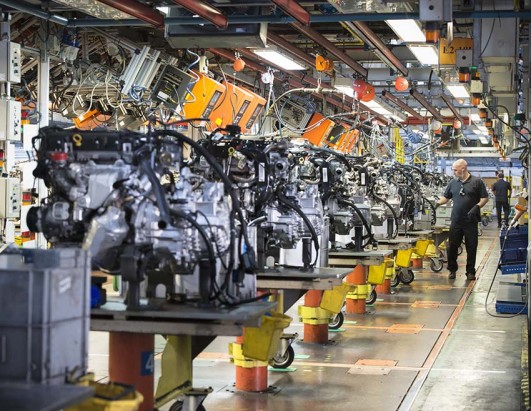4.1 Inherent conflicts within the capitalist production system
Marxist political economy (MPE) focuses on class as its unit of analysis (contrary to neoclassical economics which focuses on individual consumers and firms) and is critical of how national income is generated in capitalist societies more generally.
Marx’s (1867) Labour Theory of Value provides us with an interesting and useful explanation for the entrenched economic and social inequalities that we discussed earlier. While a majority of workers under contemporary capitalism enter into wage employment contracts that oblige them to provide their time and skills (their labour power) to a firm to produce goods and services for a market where a profit can be realised, rarely is the salary they earn as high as the actual value they create: according to MPE, the value of a commodity is not the price you pay for it on a market, but the socially necessary labour time to produce it (Fine and Saad-Filho, 2016).
Nonetheless, the creation of surplus value in itself does not yet result in economic growth in the classical account of MPE – capitalists could just use the profits that workers have generated from them and save them or spend the extra money on fancy restaurants and nice holidays. This is where the second conflict inherent to capitalism comes in: the conflict amongst capitalists. One way for capitalists to ‘outcompete’ another capitalist is for them to lower workers’ wages as labour costs are commonly a significant cost burden for business owners (thus to increase the rate of exploitation of workers). Another way is to invest into the development of new technology and innovative production processes that will make their business more productive. By investing in new and better machines, technologies and production processes, a capitalist can increase the productivity of their workforce. Thus, what ultimately drives economic growth is the extra capital available to the capitalist to invest in better technology to expand production.
Activity 5: The capitalist production process according to Marxist Political Economy
Watch this short clip and then have a go at answering the questions that follow.
a.
Own the means of production, such as a firm, machinery, or software.
b.
Manage a team in a firm.
The correct answer is a.
a.
Sell their labour power to the capitalist and rely on a wage for survival.
b.
Pursue single activities and sell the end product to the capitalist.
The correct answer is a.
a.
8-hour workday.
b.
Proportion of the working day that workers need to work in order for the capitalist to make enough money to cover their wages.
The correct answer is b.
a.
Time at work during which the worker rests.
b.
Time during which the worker does not work for themselves but works to produce a profit.
The correct answer is b.
5. Figure 8 illustrates how economic production is organised in a capitalist production system according to Marxist Political Economy. Why is capitalism an exploitative system according to MPE?
Answer
According to MPE, capitalism is exploitative because capitalists extract surplus value from workers by paying them less than the value they produce, appropriating the difference as profit. Exploitation is hence understood as the act of capitalists forcing workers to sell their labour power for less than the full value of the products they produce. Capitalism relies on this unequal relationship, where workers have little control over the means of production.
